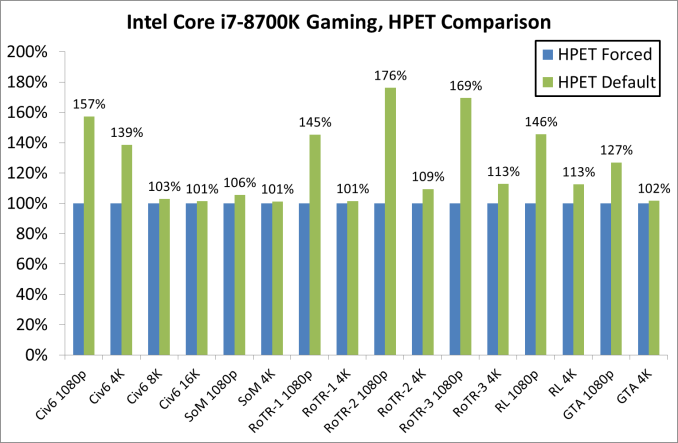- Aug 11, 2008
- 10,451
- 642
- 126
Gaming results here link
Results are much more in line with other testing sites. Anomalous results were due mainly to HPET timings, not spectre/meltdown patches as some in these forums claimed.
8700k at stock is equal or faster than Ryzen in every game tested, with overclocking headroom that would only widen the gap.
Results are much more in line with other testing sites. Anomalous results were due mainly to HPET timings, not spectre/meltdown patches as some in these forums claimed.
8700k at stock is equal or faster than Ryzen in every game tested, with overclocking headroom that would only widen the gap.



